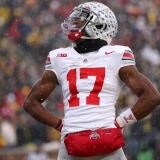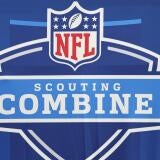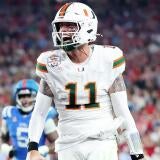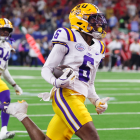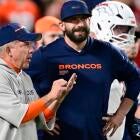2022 NFL Draft lessons we learned: Teams are willing to be patient at QB, exploding WR market impacting draft
Plus, the value of secondary depth is rising and more lessons we learned
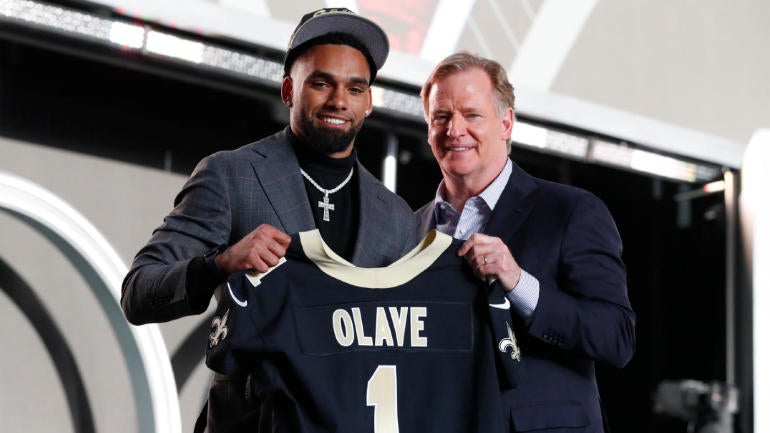
The 2022 NFL Draft was strange in many ways. Only one quarterback was taken in the first two rounds. Zero running backs were taken in the first round. There were nine trades despite a lack of top-end quarterback talent, and two wide receivers were traded for first-round picks.
Here were some of the lessons that were learned:
Teams are willing to be patient at quarterback
It was difficult to get a read on which teams were in the market for a quarterback and where they might be selected. Now we know why. NFL teams did not value those prospects the way that the media expected based on history. Pittsburgh's Kenny Pickett was the only one taken in the first round and zero were taken in the second round. Cincinnati's Desmond Ridder, Liberty's Malik Willis and Ole Miss' Matt Corral all came off the board on Day 2. Personnel executives were not willing to attach their reputation to those players early.
History has shown the success rate of quarterbacks drafted on Day 2 is relatively slim, so perhaps teams are starting to take that more into consideration. It is probably just an anomaly rather than a trend, however. Veterans Baker Mayfield and Jimmy Garoppolo are still available and that could have also relieved some of the urgency to draft a young player. CBS Sports' Ryan Wilson had six quarterbacks being taken in the first round of his 2023 mock draft.
Wide receiver market impacting the draft
In the two draft classes prior to DeAndre Hopkins receiving his lucrative contract extension in 2020, there were four total wide receivers picked in the first round. In the three years since the extension, there have been 17 picked in the first round. The trades of A.J. Brown and Tyreek Hill signaled that teams are considering the rising cost of that position and are interested in exploring potential returns. With college football being more pass-happy, there is a rise in talent available as well. Teams may be more willing to draft the position high and distribute the cost of paying a veteran to other positions.
Depth and versatility valued in the secondary
Baltimore drafted Notre Dame safety Kyle Hamilton when they already had Chuck Clark and Marcus Williams. Cincinnati selected Michigan's Daxton Hill despite having Von Bell and Jessie Bates at safety and Mike Hilton in the slot. Buffalo selected Florida's Kaiir Elam to pair with Tre'Davious White. Those were just a few teams that upgraded depth in the secondary.
The rising interest can be traced to an offense's inclination to throw the football on any given down. Teams are playing more zone and nickel coverage so defensive backs have their eyes downhill rather than turning their backs in man coverage. Awareness must be high to defend both the run and pass on early downs.
Teams prefer a quicker selection pace
Shortly after Jacksonville made the selection of Travon Walker official at No. 1 overall, Detroit turned in the card announcing the team's choice of Michigan edge rusher Aidan Hutchinson. It was so quick that apparently the NFL got upset with Detroit. The league wants deliberation so they can make more advertising money. A few of those quick triggers made Thursday night feel like it was moving faster, which was welcomed for those who live on the East Coast. Saturday also kept an expedient pace as more than 22 selections were announced each hour.
Self-awareness is key
Various teams are at different competitive stages. Some are rebuilding while others plan to contend. Some should plan for a rebuild despite having illusions of contention. It was unclear where Seattle believed they were in the process prior to the draft but selections made indicated that they have been honest with themselves and are embracing a rebuild rather than reaching for a quarterback. Initially, it appeared the same was true of Carolina. The Panthers' decision to surrender a future third-round pick to trade back up for a quarterback made that assertion murkier. If neither Sam Darnold nor Matt Corral pan out, they'll have limited resources to move around and get a quarterback next offseason.
Saints most aggressive team
The most aggressive team was New Orleans. Despite having a new head coach and Jameis Winston at quarterback, the Saints have pushed all of their chips into the middle of the table. As PFF's Austin Gayle points out, the franchise essentially traded picks No. 98, No. 101, No. 120, a 2023 first-rounder and a 2024 second-rounder for Ohio State wide receiver Chris Olave. The veteran wide receivers traded this off-season have cost less. Everyone knew the positions that the team was targeting and they set out to make it happen at any cost. The future is being compromised for the present and that seems misguided.


